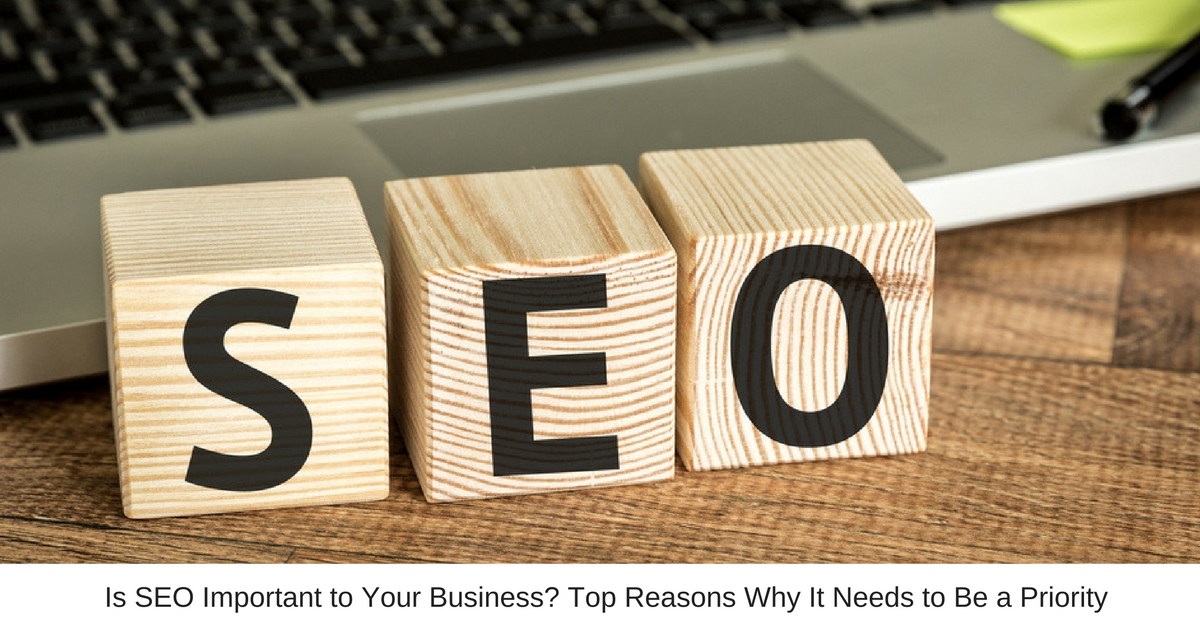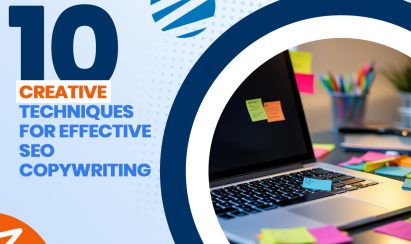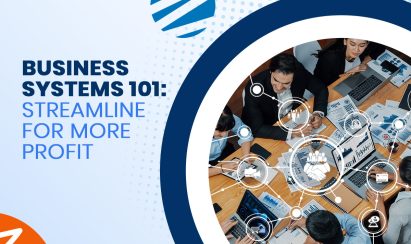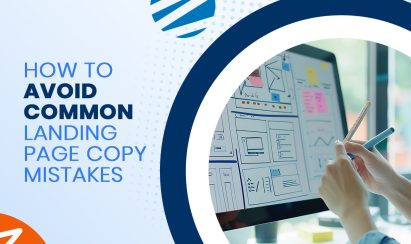Is SEO important? You could ask ten different leaders and get ten different answers. Some understand the value and choose to invest in the technique. Others don’t believe it’s still relevant. Many small business owners and leaders are on the fence. Maybe they agree SEO is important but don’t have the time or knowledge to create or implement a plan. Maybe they don’t see any value.
In the general marketing world, though, SEO is far from dead. More than 90 percent of online experiences or sessions start at a search engine, and Google owns more than two-thirds of the market share. About 70 percent of the links clicked on by users are organic search results — making SEO is one of the top tools any small business owner or marketer can implement, quickly and easily, to see an impact in their search engine rankings.
Why is SEO Important to a Small Business?

Search engine optimization, which has been a popular and important component for most Web sites for many years, continues to be a topic with which many small- and medium-sized businesses struggle. The topic of implementing and maintaining a Web site is no longer a question, even for the smallest of companies; many of these marketers and small business owners, though, are asking themselves, “Is SEO important?”
In the early years of the Internet’s importance and value in our society, SEO didn’t play the same large role it does now. The Internet was smaller, simpler, and still gaining attention. Search engines didn’t have complex Web site architecture to navigate through for results, and there weren’t as many Web sites or Internet visitors with such a wide range of search topics. In 1999, Google reported about three million searches a day, for about one billion each year. Earlier this year, the company confirmed to Search Engine Land that they now handle multiple trillions each year — at least two trillion queries are being processed each year, or about 5.5 billion searches a day.
As a result, getting seen on the first page of search engine results is more difficult than it was in the early 1990s when the Internet started to gain popularity, or even than it was in the last five years. At the same time, getting seen on the first page of search engine results is also more important than ever before — one study from Search Engine Watch shows that the number one position on Google gets 33 percent of the traffic from the search engine results. The second-ranked site gets about 18 percent of traffic and the third gets about 11. The number continues to decrease, with the tenth getting less than two-and-a-half percent; Web sites on the second page get even fewer, with less than five percent of traffic even making it to page two.
Making sure you get to page one — and moving up in rankings — is the key to being seen in the search results. That’s how you’ll reach new visitors, grow your audience, and increase your brand awareness and visibility. SEO is the tool that you’ll use to get there. The search engines are scanning your Web site and individual pages to capture the content, descriptions, and keywords, among other components. The results they get from this crawling is indexed in a massive database that contains the information from the more than 30 trillion Web pages it crawls. This database is more than 100 million gigabytes large — a number Venture Beat says would fill “three million 32GB USB thumb drives.”
During the search process, the bots pull at least 200 factors while crawling — this can range from mobile responsiveness and content quality to safety and domain age. These are stored in the database, and as users type in a query, the search engine, in less than one second, pulls the most relevant, applicable information and ranks it with the closest-matching results to the original query at the top.
Is Organic SEO More Important?
Organic SEO is an important subcategory to understand in search engine optimization methods and techniques that can benefit small businesses. There are two distinct methods of showing up on a search engine results page: organic search results and pay-per-click marketing.
- Organic search results: These are the tips and tools you’ll use to get your Web site higher in the rankings for free. It’s the art of learning what works best with the algorithm chosen by the search engine in giving your Web site greater visibility and exposure at no additional cost to you. Think about organic search results as the local newspaper calling you up to do an article on your business. It’s a great opportunity to reach new, local prospects, and publishing the result didn’t cost you anything. If the editors find the article especially compelling or interesting, you could end up on the front page — maybe even above the fold. The better job the reporter does conveying your newsworthy story, the higher the odds of reaching a better spot. Optimizing your site for organic search engine results means providing timely, quality content that catches the attention of your audience and spurs action.
- PPC: Pay-per-click advertising, then, would be an ad that you pay for on a page of the newspaper. You can pick the exact content you want, can often influence the location of your ad, and can gear the copy you write and publish toward a specific goal. In the most simplistic definition of pay-per-click advertising, you set the keywords surrounding your campaign, add in the additional specifications for your ad, and then submit the copy. Each time a user clicks on your ad copy, you pay. The confusion between PPC and organic search results comes in when looking at the search engine results page. Paid links often appear to the right of the search results list, or at the top of the list, often looking like organic search result with the exception of the green box noting that it is an ad.
While PPC is quite a popular subject for businesses of all sizes, companies that understand how to make SEO work for their company are saving money by getting organic results — an added benefit for small businesses with small marketing budgets. One of the best ways to make organic optimization techniques more relevant is by taking hold of local search engine optimization, by creating a strategy designed to address the needs of prospective visitors and customers in the closest proximity to your businesses. Bricks-and-mortar businesses, especially, can get a higher response rate both in online and foot traffic by updating their Web pages and taking a few extra steps to enhance their local organic search result methods.
- Start by making a local business page on each of the major search engines (Bing, Google, and Yahoo). These include basic details about your business, like hours, location, and contact information. If your business is already listed take the time to claim the citation for your company.
- Make sure when you are listing your business to place it in the most appropriate categories, as this will increase the chances of a good search engine ranking.
- Encourage visitors to post reviews, photos, and share the information with their friends. Make it easy to post a review by including a button on your Web site.
5 Small Business Benefits for Investing in Organic SEO
There are a number of different reasons your business should invest in organic search engine optimization, and an even greater number of benefits your business can experience as a result — many go beyond just getting more traffic to your Web site.
- You’ll get a better, more user-friendly Web site. Your Web site isn’t for you or your employees — the goal of a Web site is to get your information to your current and future customers. Is SEO important in developing your Web site? Very, because the factors influencing your search engine rankings are pulled right from your Web site. To get higher on the search engine ranking page, you’ll have to learn what your customers want, and make sure that your Web site includes and highlights that information. The closer you get to reaching your customers’ goals, the higher you’ll rank in the results.
- You’ll get to know your customers better. One goal of marketing in all of its forms is to get to know your audience members so you can give them information they need to make an informed decision that points them toward your products or services. While the best way to do this is by engaging visitors and having individual conversations, that isn’t always realistic. Implementing an analytics plug-in on your Web site, though, will show you a number of different indicators that help you get to know your audience members better. This can include their location, the keywords they are using to find your site, the length of time they are spending on your site, and the links they are clicking on and through. Learning this information can help to lead the discussion and shape the way you present your information.
- You’ll be able to expand your online business hours. The Internet never sleeps — and if your Web site is optimized for search engines, neither will your business. Getting a higher organic ranking for your top keywords will help you to gain new customers and prospects outside of your traditional business hours. As a result of the increased hours in and across multiple time zones, individuals searching for and finding your Web site will be able to find you and your optimized landing pages at any time, increasing your market and expanding your market reach. This means that while you’re sleeping, you could be receiving emails and contact messages from new customers around the world.
- You’ll be able to reach new markets. While that is the point of search engine optimization, these new markets can go beyond what you’re expecting. This can include markets based on geographic location, and markets based on searching locations. Google places a higher value on Web sites that, as part of their optimization, are mobile-friendly. A mobile-friendly site means that your site is user-friendly for individuals who are searching on a smartphone or tablet — and if your users have traditionally visited on desktop or laptop computers, an optimized site means you’ll have a greater chance of reaching new customers who are searching for you on mobile devices.
- You’ll be able to enhance your social media presence. Many companies have found that as their search engine rankings increase, so do their likes, retweets, +1s; as those increase, so do a company’s search engine results rankings. How does this happen? Well, Twitter is one of the Web sites that the bots for Google crawl to find your content — which means those pages are getting higher traffic. The social affirmation given through shares, Tweets, posts, and more are seen as link-building tools that Google likes to use when ranking a Web site. In addition, these shares and likes help to build your authority, which is another strong factor in Google’s ranking decisions.
Is SEO Important for You?
It’s becoming more evident that if you want to be number one in organic search results, you’ll have to make a little investment in your search engine optimization plans — putting time, effort, and strategy now, though, can result in huge results later as you find your Web site moving up in the rankings. With more people finding that their customers either consciously or subconsciously place a higher value on higher-ranked sites, there’s no longer a question of why, or even is SEO important. The biggest question you should be asking about your company’s search engine optimization is what you can do to improve your SEO strategy and make it more effective.
What is your company doing to optimize your Web site for search engines? Do your leaders understand the importance of SEO for your company? If not, contact Business Marketing Engine today — you’ll get a free consultation with experienced professionals who understand the situation you’re facing and can give you solutions to improve your SEO and see why it is so important.






